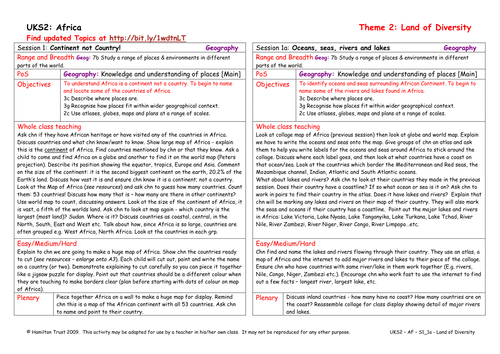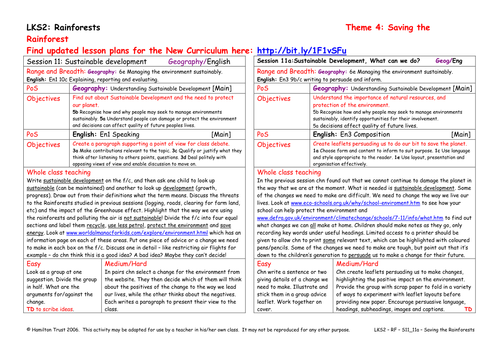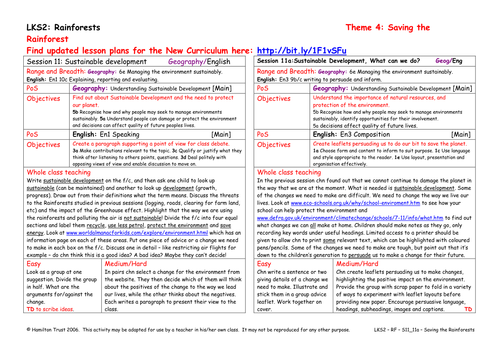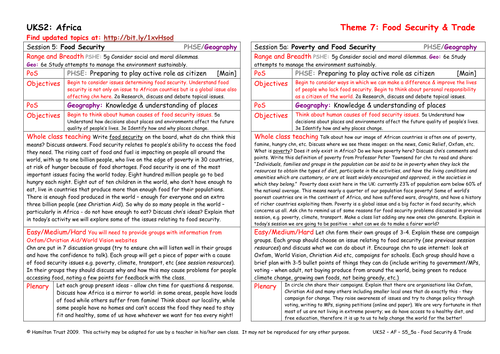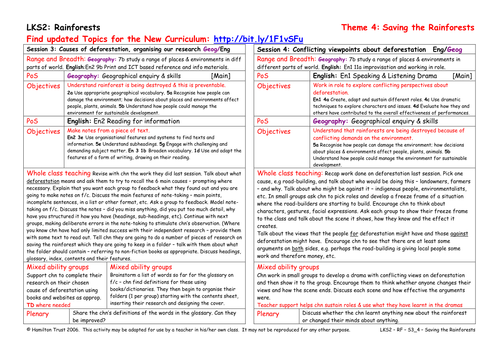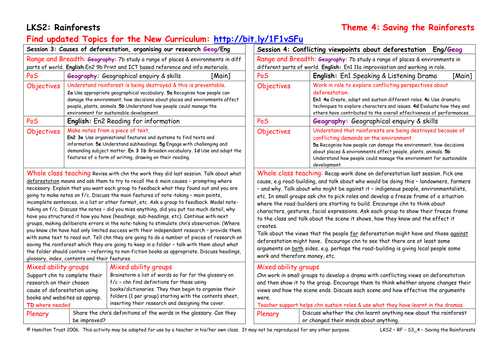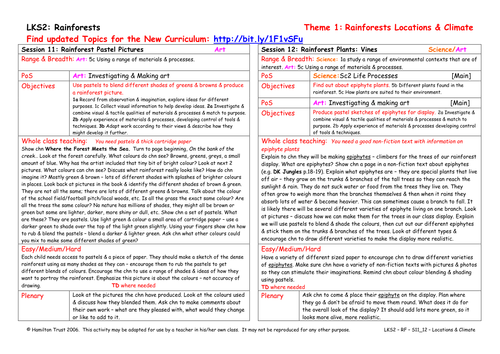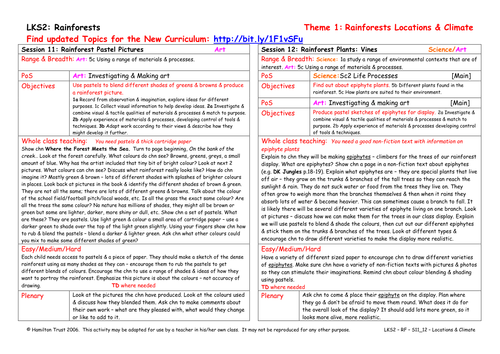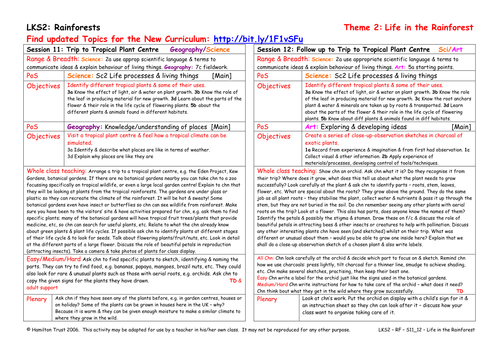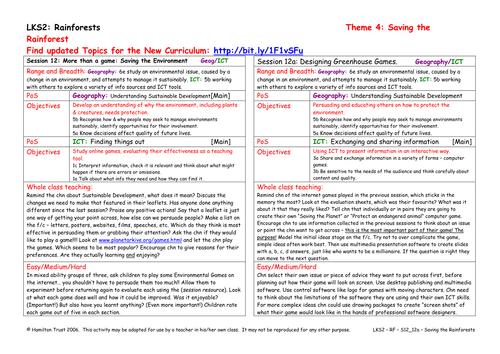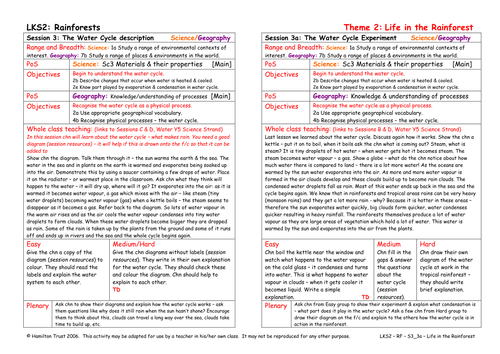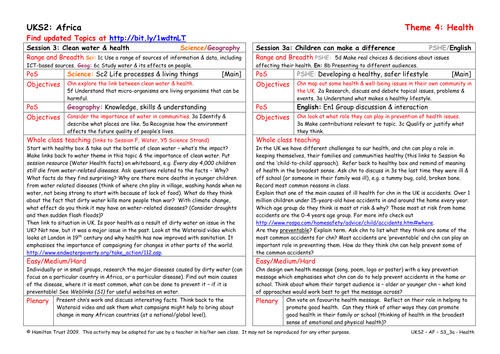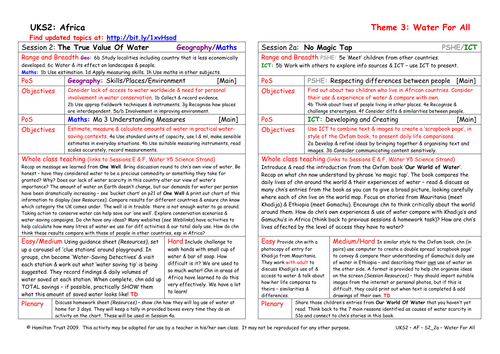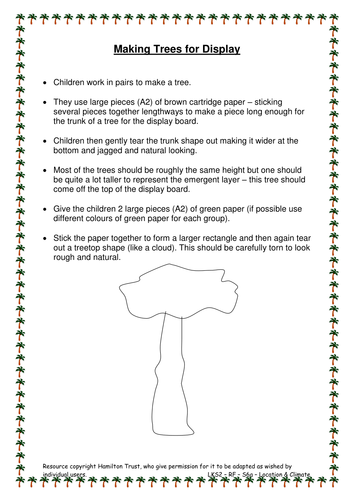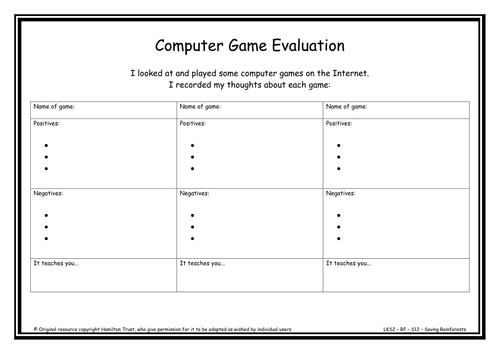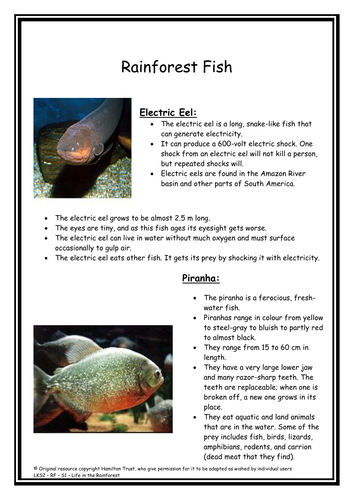
397Uploads
10045k+Views
11646k+Downloads
Geography

Italy & The UK
Following the work in Session 11, chn consider how Italy fits into the categories of countries in the modern world. After a discussion of the difference between developed and developing countries, children identify the differences between Italy and the UK.
Suitable for years 3 and 4.

Family Food
Consider where the food that we eat comes from. Grown at home, locally or in another country? Discuss food miles. Who does the shopping, cooking, washing up? Where does the water come from? Cook a meal/dish and write the recipe to send to your link school. Suitable for years 5 and 6.

Oceans, seas, rivers and lakes
Following their personal choices in session 1, children research the countries they identified. They mark physical features on their maps, including rivers, lakes, deserts and mountains. They also identify the oceans and seas.
Suitable for years 5 and 6.

Sustainable Development
The way we are damaging the planet we live on is not sustainable! Children find out about sustainable development and look at some of the changes that we need to make. Children think of both positives and negatives for these changes.

World Trade Game
Through playing the Christian Aid Chocolate Trade Game (need internet) children come to understand, in a fun way that world trade rules are unfair to developing food producing countries. They think about human causes of food security issues.

Sustainable development - What can we do?
All talk no action...! Not in this session. Children use the internet to find out what else we can do before creating leaflets to persuade other children and adults to make the change!

Poverty and Food Security
Children think positively about ways in which we can help to improve the lives of people who lack food security. Thinking about our responsibilities as world citizens, children discuss ways of campaigning to change the causes of lack of food in Africa.

Causes of deforestation, organising our research
In this session children find out how to create key word notes and organise their information in folders with contents pages. Children continue to use non fiction book features and the internet to locate information effectively.

Conflicting viewpoints about deforestation
There are two sides to every argument! In this session children take on roles on opposing sides of the deforestation argument. Children create simple freeze frames and sketches to put points across.

Rainforest Pastel Pictures
Using Where the Forest Meets the Sea children study in detail the palette of colours created by the rainforest. Then using pastels and blending techniques children create a pastel rainforest picture.
Suitable for years 3 and 4.

Rainforest Plants - Vines
Epiphytes are small plants that live not in the soil but happily up on the branches of trees in the layers of the rainforest. In this session children find out more and create pastel epiphytes for the Rainforest display.
Suitable for years 3 and 4.

Trip to Tropical Plant Centre
In this session children get up close and personal with tropical plants on a visit to a botanical garden, zoo or even a large garden centre. Children find out more about conditions for growth and the life cycles of different plants.
Suitable for years 3 and 4.

Designing Greenhouse Games
In this session children apply what they found out in the previous session about internet games to create their own Saving the Planet computer game. Whose will be most enjoyable? Which game will encourage us to do things differently?

Creative Designs
Applying their knowledge of Mozambique batik, children plan and design a wall hanging. Children sketch their designs bearing in mind the techniques of batik and the need for clear, simple images.

The Water Cycle Experiment
In this session children get a better understanding of why there is so much rain in rainforest regions. Chn create simple explanations in wordsildren pictures and diagrams.
Suitable for years 3 and 4.

Clean Water and Health
Children research the impact of dirty water on health. They present research to the class and identify the biggest killer diseases. Opportunity here to link back to the water topic, and understanding of a preventable disease.
Suitable for years 5 and 6.

The True Value of Water
The global well is in trouble – not enough water to go around. Take action to conserve water! Children use ‘clue stations’ to discover water-saving tips, working out how much water they would save. They are set homework to log water use at home over 3 days.
Suitable for years 5 and 6.

Rainforest Display
Children create a piece of rainforest in the classroom in this session. After looking at images of rainforests and their trees, children use coloured papers to create trees and leaves for display.
Suitable for years 3 and 4.

More than a game… Saving The Environment
Who says learning can’t be fun! Children play and interact with a variety of computer games in the internet, all with a serious message. Children evaluate which are the most fun to play but also best at getting that message across.

Variety of Species in the Rainforest
90% of the world’s animals and plants live in the 6% of the world that rainforests cover! In this session the class splits into groups to find out more about animals that have rainforests as their habitat.
Suitable for years 3 and 4.



